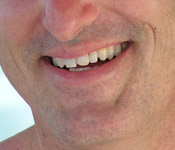Even if you think you know what is a canker sore and that most of the time it is self-limiting and will go away in about a week, if this is the first time you are experiencing one it would be a good idea to see your doctor or dentist to have it checked out. Even though it may seem trivial, you want to make that’s what you have and not something else. Most of the time it turns out to be a run-of-the-mill aphthous ulcer, but there are several other conditions that can imitate them, as well as underlying conditions that may cause them as a symptom. Among the possibilities are oral cancer and several autoimmune conditions. But before you go and get worried, it’s important to remember that these situations are quite rare and most of the time it is just a plain old canker sore without an associated disease or disorder.
Underlying Conditions That May Cause Recurring Mouth Sores
 Most of the time canker sores develop from some kind of a blip in the immune system, although the exact cause is unknown. But sometimes there are certain underlying factors or conditions that may cause canker sores as a symptom. If you see your doctor, he or she can run some tests to see if there may be a reason for your oral ulcer, especially if you get them often.
Most of the time canker sores develop from some kind of a blip in the immune system, although the exact cause is unknown. But sometimes there are certain underlying factors or conditions that may cause canker sores as a symptom. If you see your doctor, he or she can run some tests to see if there may be a reason for your oral ulcer, especially if you get them often.
Vitamin and Mineral Deficiency
One reason a person might develop frequent mouth ulcers is due to a vitamin deficiency. There is some research indicating that deficiencies in vitamin B12, folic acid, iron or zinc may cause canker sores to develop as a symptom of nutritional deficiency. Your doctor can run blood tests to check for these issues. There is some evidence that correcting the deficiencies will reduce or eliminate outbreaks.
Inflammatory Bowel Disease (IDB)
Other than the intestinal symptoms of inflammatory bowel disease, some people experience other issues including skin irritations, joint pain, eye problems and oral ulcers.
Celiac Disease
Celiac is a serious intestinal disorder whereby patients have an inability to digest gluten including wheat, barley and many other grains, making it difficult to absorb nutrients. One of the signs of celiac disease is outbreaks of mouth sores.
Immune System Disorders
People who suffer from a chronic disease that affects their immune system may be prone to canker sores. Especially if you are taking immunosuppressant drugs, you should see your doctor if you get a mouth sore. This is because your ulcer needs to be nipped in the bud before it gets worse, as they can be much harder to treat when you have an immune system disorder.
Common immune system disorders associated with the development of canker sores includes:
- Systemic Lupus Erythematosus, which appears more commonly in women than men and is characterized by acute and chronic inflammation of body tissues
- Crohn’s Disease, a chronic inflammatory disease of the intestines
- Behçet syndrome , a disorder that causes inflammation throughout the body including recurring mouth ulcers, genital ulcers and inflammation around the pupil of the eye.
- HIV and AIDS, which depresses the immune system
- Celiac disease
- Histoplasmosis – a fungal infection that may appear as a mouth ulcer
Oral Cancer
There are some types of cancer that may first appear as a mouth ulcer that does not heal, including squamous cell carcinoma. It is especially important that you see your dentist or doctor if you have a what seems to be a mouth sore that has not healed in three weeks.
Major Aphthous Ulcers
If you are experiencing a major aphthous ulcer, you should seek medical care. Major aphthous ulcers are large lesions with a diameter of more than 12mm and account for about 10% of all canker sores. They can take up to a month or even six weeks to heal and can cause scarring due to massive inflammation.
Severe Pain
If your mouth sores are so painful that you have great difficulty eating or talking and you can’t find relief with over-the-counter products, you should see your doctor or dentist. They can prescribe topical treatments, mouth rinses or in extreme cases, oral steroid medications such as prednisone to reduce the inflammation.
Conclusion: Be sure to see your doctor to determine what is a canker sore versus what may be something else.


